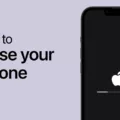Bluetooth technology has revolutionized the way we connect and share information wirelessly. It has become an indispensable feature in smartphones, laptops, headphones, and other electronic devices. While Bluetooth technology has made our lives easier, it has also opened up new avenues for hackers to exploit vulnerable devices. In this article, we will explore how to tell if your Bluetooth is hacked and what steps you can take to secure your device.
Bluetooth hacking is a type of cyber attack where a hacker gains unauthorized access to a Bluetooth-enabled device, such as a smartphone or laptop. Hackers can use various techniques to exploit Bluetooth vulnerabilities, including Bluejacking, Bluesnarfing, and Bluebugging. Bluejacking is where a hacker sends unsolicited messages to a Bluetooth-enabled device, while Bluesnarfing is where a hacker gains access to a device’s data, such as contacts, messages, and files. Bluebugging is where a hacker takes control of a device, allowing them to make calls, send messages, and access other data on the device.
So, how can you tell if your Bluetooth is hacked? There are several signs to look out for:
1. Your phone loses charge quickly: Malware and fraudulent apps sometimes use malicious code that tends to drain a lot of power. If you notice that your phone’s battery is running out faster than usual, it could be a sign that your device is compromised.
2. Your phone runs abnormally slowly: If your phone is running slower than usual, it could be a sign that there is malware running in the background. Malware can slow down your device’s performance, making it difficult to carry out basic tasks.
3. You notice strange activity on your other online accounts: If you notice unusual activity on your social media or email accounts, it could be a sign that your device has been hacked. Hackers can use compromised devices to gain access to other accounts, so it’s important to monitor your online activity regularly.
4. You notice unfamiliar calls or texts in your logs: If you see calls or texts from unknown numbers in your phone log, it could be a sign that your device has been hacked. Hackers can use compromised devices to make calls or send messages without the owner’s knowledge.
If you suspect that your Bluetooth device has been hacked, there are several steps you can take to secure your device:
1. Turn off Bluetooth when not in use: One of the easiest ways to prevent Bluetooth hacking is to turn off Bluetooth when you’re not using it. This will prevent hackers from discovering your device and attempting to exploit vulnerabilities.
2. Use a strong password: Make sure to use a strong password to protect your Bluetooth device. Avoid using common passwords, such as “1234” or “password,” and use a combination of letters, numbers, and special characters.
3. Keep your device up to date: Make sure to install the latest software updates for your device. These updates often contain security patches that can prevent hackers from exploiting vulnerabilities.
4. Avoid public Wi-Fi: Avoid connecting to public Wi-Fi networks, as these networks can be easily compromised by hackers. If you need to connect to a public Wi-Fi network, use a VPN to encrypt your traffic and protect your device.
Bluetooth technology has made our lives easier, but it has also opened up new avenues for hackers to exploit vulnerable devices. By following the steps outlined in this article, you can protect your Bluetooth-enabled device from cyber threats and ensure that your personal information remains secure.

Can Bluetooth Be Used to Hack a Phone?
It is possible for a phone to be hacked through Bluetooth if a hacker gains access to your phone’s Bluetooth connection while it is within range. The range for Bluetooth connections is typically around 30 feet. If a hacker is able to access your phone’s Bluetooth connection, they may be able to access your phone’s data, such as contacts, photos, and messages. It is important to keep your phone’s Bluetooth connection secure by turning it off when not in use and only pairing it with trusted devices. Additionally, keeping your phone’s operating system and security software up to date can help protect against potential Bluetooth hacks.
Can Unauthorized Users Connect to My Bluetooth Without My Knowledge?
It is possible for someone to connect to your Bluetooth device without you knowing. This is because Bluetooth technology uses radio waves to transmit data over short distances, typically up to 30 feet. If your Bluetooth device is within range and discoverable, cybercriminals can use specialized software to scan for and locate Bluetooth-enabled devices. However, even if your device is not discoverable, cybercriminals may still be able to connect to it if they have access to your Bluetooth device’s unique MAC address. They could then use this address to force a connection to your device. This is known as a Bluetooth MAC address spoofing attack. To protect yourself, it’s important to keep your Bluetooth device in non-discoverable mode when not in use and to use strong passwords and encryption protocols to secure your Bluetooth connections.
Signs That Your Phone Is Hacked
There are several signs that your phone may have been hacked. Firstly, if your phone loses charge quickly, it could be due to malware or fraudulent apps that use malicious code to drain power. Secondly, if your phone runs abnormally slowly, it could be a sign of malware or spyware running in the background.
Another sign that your phone may have been hacked is if you notice strange activity on your other online accounts, such as social media, email, or bank accounts. This could be a sign that someone has gained access to your login credentials and is using them to access your accounts.
Additionally, if you notice unfamiliar calls or texts in your call logs or message history, it could be a sign that someone has gained access to your phone and is using it to make unauthorized calls or send messages.
Other signs that your phone may have been hacked include unexplained data usage, apps that you did not download appearing on your phone, and your phone restarting or shutting down on its own. If you notice any of these signs, it is important to take action to protect your phone and your personal data.
Can I Be Spied On Through Bluetooth?
It is possible for someone to spy on you through Bluetooth. Bluetooth technology uses radio waves to communicate between devices, and if a hacker gains access to your Bluetooth connection, they can potentially access your device’s data, including your personal information, contacts, and messages. This can be done through a dedicated Bluetooth spy app or by gaining physical access to your device. It is important to take precautions to protect your Bluetooth connection, such as keeping your device’s Bluetooth function turned off when not in use, using a strong and unique password, and avoiding connecting to unknown or unsecured Bluetooth devices. Additionally, it is recommended to regularly update your device’s software to ensure any security vulnerabilities are addressed.
Conclusion
Bluetooth technology has become an integral part of our daily lives, allowing us to connect and share data wirelessly. However, with the convenience comes the risk of security breaches and hacking. It is essential to be aware of the potential risks and take necessary precautions to protect our devices and personal information. Keeping Bluetooth devices updated with the latest security patches, disabling discoverability, and avoiding connecting to unknown or suspicious devices can go a long way in preventing hacks and unauthorized access. As technology continues to evolve, so do the threats, and it is up to us to stay vigilant and informed to stay safe in the digital world.








